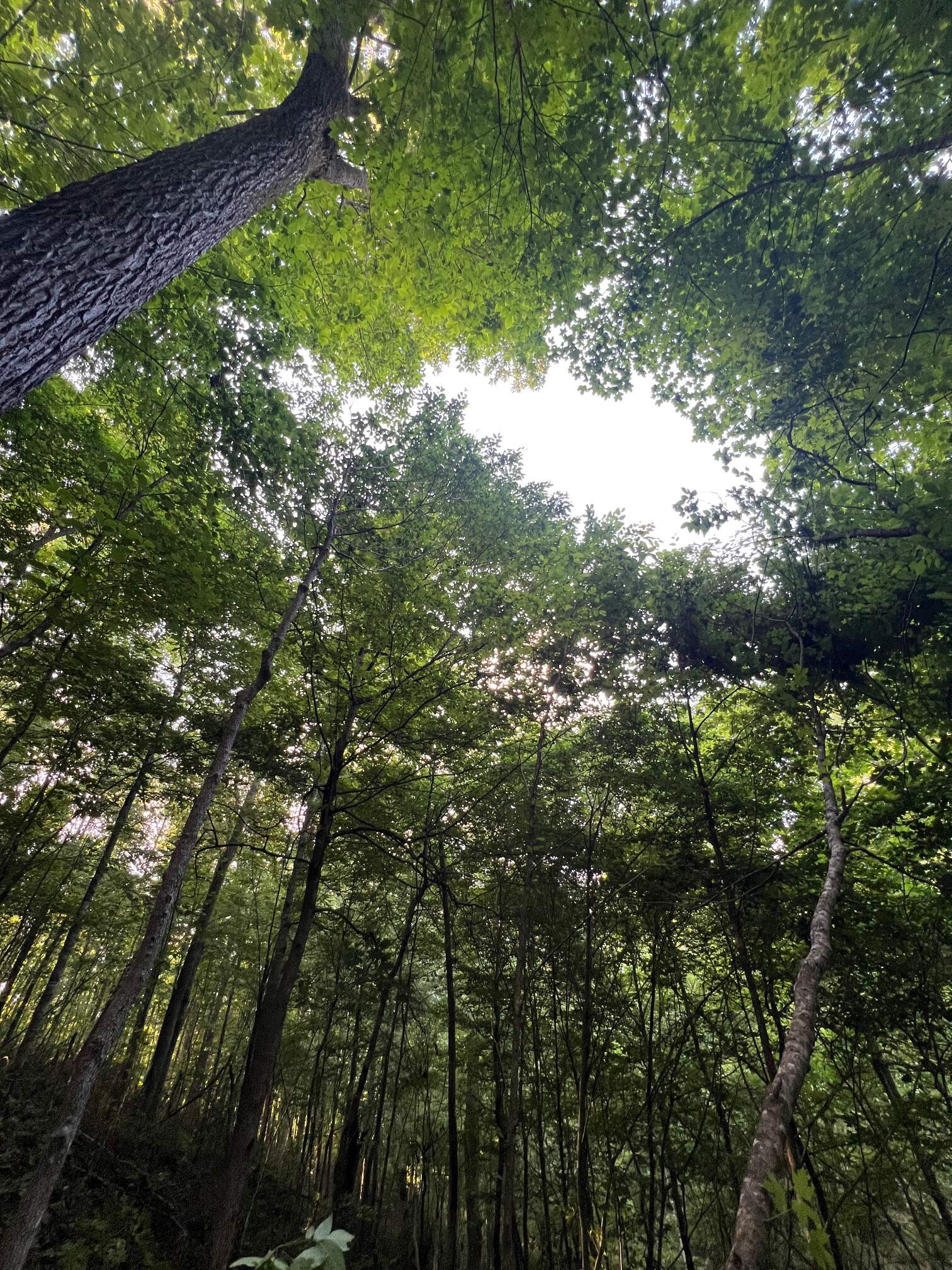
The Mental and Physical Benefits of Forest Bathing

Finding Peace in Nature
In today’s fast-paced, high-stress world, nature offers us an escape from the chaos. While we are constantly bombarded with technology and endless to-dos, it serves as a sanctuary to disconnect from society and reconnect to ourselves. Scientific research increasingly supports the idea that spending time in natural environments—whether that’s forests, parks, or even urban green spaces—significantly enhances both physical and mental health.
What Is Forest Bathing?
A simple and powerful way to experience the healing benefits of nature is through the practice of forest bathing, also known as Shinrin-yoku in Japan. Forest bathing involves spending quiet, intentional time in nature with full presence. While forest bathing, individuals engage all five senses to connect deeply with the environment. For example, a forest bather might notice the sweet smell of flowers, the rustling of leaves, or the gentle play of sunlight through the trees.
By slowing down and tuning in, forest bathing helps quiet the mind and supports both mental and physical health in measurable ways.

Mental Health Restoration
Forest bathing is deeply restorative for the nervous system and brain. It has been shown to significantly alleviate symptoms of anxiety, depression, and stress. Studies reveal that simply being in nature can increase levels of serotonin, the neurotransmitter associated with mood regulation, and decrease levels of cortisol, the body’s primary stress hormone (News Medical, 2023).
Time in nature also boosts activity in the prefrontal cortex—the brain region responsible for executive function and emotional regulation—leading to improved mental clarity and emotional balance (Bratman et al., 2015). Participants in forest walks often report reduced rumination, or repetitive negative thought patterns, a core symptom of both depression and anxiety.
Improved Focus and Attention
Forest bathing has also been linked to better attention span and reduced mental fatigue. According to Attention Restoration Theory (Kaplan, 1995), nature provides a form of “soft fascination” that gently engages the brain without overloading it. In one study, participants who walked for 90 minutes in a natural setting reported less rumination and showed reduced neural activity in a brain region tied to mood disorders (Bratman et al., 2015).
These mental health benefits—less stress, improved mood, greater focus, and emotional resilience—make forest bathing a powerful tool for maintaining mental wellness.
Physical Health Benefits
Forest bathing not only nurtures the mind but also offers a wide range of physical health benefits.
Lower Blood Pressure and Heart Rate
A recent meta-analysis examined how forest bathing impacts urban dwellers, who often experience elevated stress and blood pressure. The findings were striking—time in nature significantly lowered both blood pressure and heart rate (Antonelli et al., 2022). These improvements are due to the forest’s ability to activate the parasympathetic nervous system (rest-and-digest mode) and suppress sympathetic nervous system activity (fight-or-flight response).
Stronger Immune Function
Forest bathing has also been shown to boost immune system function. Trees release phytoncides, natural compounds that have antimicrobial properties. Inhaling these during forest walks enhances the number and activity of natural killer (NK) cells—white blood cells that help fight infections and cancer. In fact, Li (2010) found that the immune-boosting effects of forest bathing can last more than 30 days after just one weekend of time in the woods.
Reduced Inflammation and Better Metabolism
Forest bathing has been associated with lower levels of inflammatory markers such as C-reactive protein (CRP), as well as improved insulin sensitivity—a factor in preventing type 2 diabetes (Ohtsuka et al., 1998). In addition, forest air is often cleaner and richer in beneficial microbes than urban air, supporting both respiratory and microbiome health.
Together, these findings highlight forest bathing as a natural, non-invasive way to enhance immunity, lower inflammation, and improve overall physical resilience.
Conclusion: A Natural Prescription for Wellness
In a world that rarely slows down, forest bathing offers us a natural and accessible way to pause, reset, and heal. By simply spending intentional time in nature—whether in a dense forest or a quiet neighborhood park—we give our bodies and minds the opportunity to recover from the demands of modern life.
From lowering stress hormones and blood pressure to enhancing immune function and lifting our mood, the evidence is clear: nature is not just a luxury, it’s a necessity. As research continues to affirm what many intuitively feel, forest bathing stands out as a powerful, science-backed tool for cultivating greater well-being, resilience, and balance in our everyday lives.

References
- Antonelli, M., Donelli, D., Barbieri, G., Valussi, M., & Maggini, V. (2022). Effects of forest bathing (shinrin-yoku) on levels of cortisol as a stress biomarker: A systematic review and meta-analysis. International Journal of Biometeorology, 66(10), 1823–1838. https://www.ncbi.nlm.nih.gov/pmc/articles/PMC9819785/
- Bratman, G. N., Hamilton, J. P., Hahn, K. S., Daily, G. C., & Gross, J. J. (2015). Nature experience reduces rumination and subgenual prefrontal cortex activation. PNAS, 112(28), 8567–8572. https://doi.org/10.1073/pnas.1510459112
- Kaplan, S. (1995). The restorative benefits of nature: Toward an integrative framework. Journal of Environmental Psychology, 15(3), 169–182. https://doi.org/10.1016/0272-4944(95)90001-2
- Li, Q. (2010). Effect of forest bathing trips on human immune function. Environmental Health and Preventive Medicine, 15(1), 9–17. https://doi.org/10.1007/s12199-009-0086-9
- News Medical. (2023). Forest Bathing for Health: How Nature Nurtures Wellbeing. https://www.news-medical.net/health/Forest-Bathing-for-Health-How-Nature-Nurtures-Wellbeing.aspx?
- Ohtsuka, Y., Yabunaka, N., & Takayama, S. (1998). Shinrin-yoku (forest-air bathing and walking) effectively decreases blood glucose levels in diabetic patients. International Journal of Biometeorology, 41(3), 125–127.



.png)